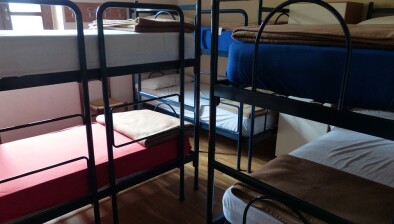 The Scottish Housing Regulator has published the areas of risk it will focus on in its annual risk assessment.
The Scottish Housing Regulator has published the areas of risk it will focus on in its annual risk assessment.
The Regulator will continue to focus on good services for tenants and well-governed Registered Social Landlords (RSLs) that manage resources to ensure their financial well-being.
This year it will also have a strong focus on how local authorities deliver for people who are homeless and how RSLs help by providing them with homes.
On service quality, the Regulator will focus on the areas that tenants have said matter most to them such as:
tenant satisfaction; complaint handling; repairs; gas safety; anti-social behaviour; tenancy sustainment; rent collection; relets and managing empty homes; lets to homeless people. For risk assessments involving homelessness, the Regulator will consider the following areas:
access to services, advice and prevention: how easy it is for people to find and use the service they need and the range of help and information given to people; assessment: the decisions a local authority makes on homeless applications; outcomes for homeless people: what happens to people after the local authority has assessed their homelessness and made a decision including the number of lets landlords provide to homeless people; the use of temporary accommodation: a place where people stay while their homelessness is considered or until they move into a more permanent home. When assessing risk to the quality of tenants’ homes and considering the level of assurance needed, the Regulator looks at:
how landlords are addressing houses which fail SHQS; landlords’ awareness of stock condition – and in particular the age and scope of stock quality information as well as future survey plans; any deterioration in performance on abeyances or exemptions. When it considers financial risk the Regulator looks at the risk or probability that an RSL will not comply with this standard particularly around financial well-being. This year it has adapted its approach to take account of the introduction of Financial Reporting Standard 102 (FRS102).
It will look at:
General financial well-being: it uses a range of ratios and trend information to measure an RSL’s financial performance. It also considers each RSL’s ability to provide accurate forecasts of its financial performance. Welfare reform and rent levels: it measures the impact and potential impact of changes in the welfare system by considering the trends in voids, bad debts, arrears and rent increases. Other activities and group structures: it considers the risk that diversification into non social housing activities may present to each RSL. Where the RSL has a parent, it will also consider its performance. Development: it considers the impact of any programme to build new houses. Treasury: it considers the degree of complexity of each RSL’s funding strategy and debt repayment profiles. Pensions: it considers each RSL’s pension position. Other regulatory information: it considers other relevant information including auditor reports under S72 of the Housing (Scotland) Act, notifiable events and auditors’ management letters. In assessing risks to good governance and deciding on the level of engagement that it needs to have around governance, the Regulator will look at:
information and intelligence from its previous engagements with the RSL; any concerns raised directly with us by tenants and other service users, including Significant Performance Failures; any whistleblowing or allegations about improper conduct reported to the Regulator; notifiable events; information from applications for consent to constitutional change or disposals; information gathered during inquiry work (including thematic inquiries); information about governance contained in the Annual Return on the Charter, including staff turnover and governing body membership; any complaints about the RSL to the Scottish Public Services Ombudsman; information from statutory auditors; broader performance or financial issues that raise concern about its governance; the findings from the governance assessments and thematic work on governance. The Regulator uses the annual risk assessment process to decide its level of engagement with each social landlord.
Helen Shaw, assistant director (finance & risk), said: “Each year we review the risks we look at in our annual risk assessment to make sure they’re relevant and reflect landlords’ operating environment.
“Landlords face risks around rents, budgetary pressures, building new homes and homelessness. They face new uncertainties around the implications of Brexit and proposed regulatory changes, as well as challenges in building more social and affordable homes.
“We’ll look at all of this in our risk assessment to help protect the interests of tenants, homeless people and others who use the services of social landlords.”
The Regulator will publish its regulation plans, local scrutiny plans and a summary of the outcomes of its annual risk assessment early next year.
 The Scottish Housing Regulator has published the areas of risk it will focus on in its annual risk assessment.
The Scottish Housing Regulator has published the areas of risk it will focus on in its annual risk assessment.








